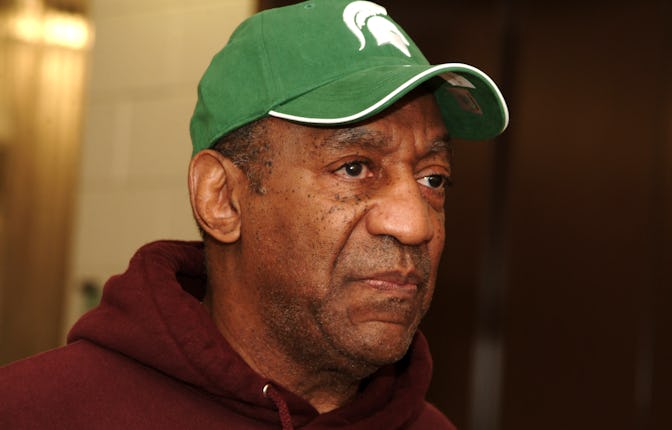The Supreme Court will not revisit Bill Cosby's case
Because of the decision, Cosby will remain free.

Bill Cosby will not be going back to prison. The Supreme Court decided Monday to not hear an appeal from prosecutors to reconsider the sexual assault case against the disgraced comedian and actor. Cosby was convicted in 2018 of sexually assaulting Andrea Constand in 2004. Constand’s case was the lynchpin in getting justice for the 60 women who came forward to accuse Cosby of drugging and raping them, as her case was the only one that was not beyond the statute of limitations. Constand said at the time in her victim impact statement, "We may never know the full extent of his double life as a sexual predator, but his decades-long reign of terror as a serial rapist is over."
However Cosby, after being sentenced to three to ten years in prison, was released last summer in a contentious decision by the Pennsylvania Supreme Court. It all hinged on a technicality. In 2005, Montgomery County District Attorney Bruce Castor made an agreement with Cosby to not prosecute in Constand’s case if he would testify instead in a civil suit — during which he complied and admitted to using quaaludes to drug women. Later, Castor’s successor, Kevin Steele, did decide to prosecute Cosby, and used part of the confession from the civil suit as crucial evidence in court. So while Cosby did admit to drugging women in order to have sex with them, the Pennsylvania Supreme Court found the trial unconstitutional and overturned the conviction. On June 28, 2021, Cosby was freed. Within a week, he was announcing his plans to return to the stage and go on a large-scale tour.
Cosby’s publicist, Andrew Wyatt, said in a statement, “Mr. Cosby's Constitutional Rights were a ‘reprehensible bait and switch’ by Kevin Steele, Judge Steve T. O'Neill and their cohorts...This is truly a victory for Mr. Cosby but it shows that cheating will never get you far in life and the corruption that lies within Montgomery County District's Attorney Office has been brought to the center stage of the world.” The Montgomery Country District’s Attorney Office had asked the high court in their appeal, “The question presented to the Court is: ‘Where a prosecutor publicly announces that he will not file criminal charges based on lack of evidence, does the Due Process Clause of the Fourteenth Amendment transform that announcement into a binding promise that no charges will ever be filed, a promise that the target may rely on as if it were a grant of immunity?’”
SCOTUS’ refusal to hear the prosecution’s cases to reinstate Cosby’s conviction was delivered without comment. It is worth noting that two Supreme Court Justices, Brett Kavanaugh and Clarence Thomas, were very publicly accused of sexual assault and harassment, respectively, during their confirmation hearings to the court. The court refuses to hear plenty of cases — it’s not abnormal. But in this high-profile instance, in a case that is a barometer of the lasting power of the #MeToo movement, the decision speaks volumes. It could potentially set a precedent to allow more sexual abusers to overturn their convictions on technicalities when getting a sexual abuse conviction is already objectively difficult in the first place. Regardless, Cosby will at least remain a poster child for a celebrity sexual predator, but his legal battle is over without any further consequences.